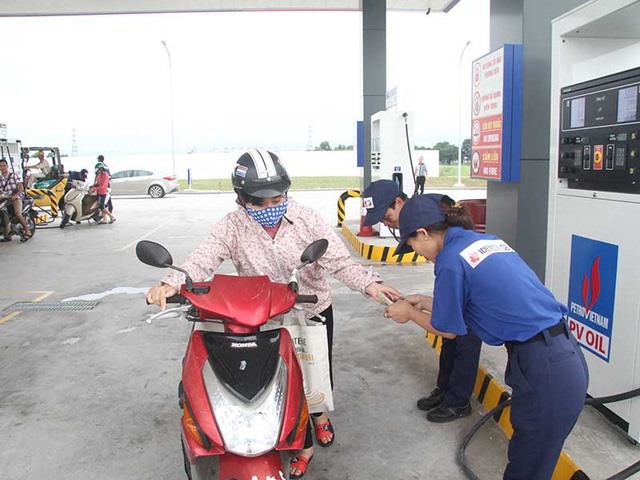 Economy
Economy

The launch of the first foreign-own petrol station last week is expected to introduce changes in Việt Nam's fuel retail market, making it truly competitive, however, there are early warning signs.
 |
| Staffs of Idemitsu Q8’s station in Đông Anh District bow when receiving money from a buyer. - Photo plo.vn |
HÀ NỘI – The launch of the first foreign-own petrol station last week is expected to introduce changes in Việt Nam’s fuel retail market, contributing to making it truly competitive, however, there are early warning signs.
Idemitsu Q8, a joint venture between Japan’s Idemitsu and Kuwait Petroleum International Ltd, opened its first petrol station on October 5 at Thăng Long Industrial Park in Hà Nội’s Đông Anh District.
With Japanese-quality services and guarantee to sell petrol with a less than 0.01 litre margin for error, Idemitsu Q8 has impressed Vietnamese buyers, who had got accustomed to the services of local sellers. The image of Idemitsu Q8 general director Hiroaki Honjo standing in the rain bowing in gratitude to customers visiting the petrol station earlier this week, in particular, made a notable impression.
Lê Thị Hồng Vân, a worker who visited Idemitsu Q8’s station to buy gasoline, told HCM City Law Newspaper: “I am surprised by the friendly manner of the staff here. I hope gasoline stations of Vietnamese companies can improve their service quality.”
Expert Ngô Trí Long said the participation of a wholly foreign-owned retailer in the petrol market was like a breath of fresh air and posed both opportunities and challenges for players in the market.
Long said it was critical for local players to make changes to compete, which would drive the retail petrol market towards more competitiveness and transparency.
What made Idemitsu Q8 gain customers’ trust was service quality, Long said, adding that Vietnamese consumers were particularly concerned about fuel quantity, quality, prices and service quality.
Long said there was modest room for players to compete in terms of prices because the Government of Việt Nam still set a ceiling price for petrol.
Phan Thế Ruệ, chairman of the Việt Nam Petrol and Oil Association, said the fuel market was only partially competitive, adding that only if retailers were allowed to decide prices, would it could create real competition.
Ruệ said the Government should not set the ceiling price, but instead set the price range for each period.
Ruệ also warned that foreign firms should not be given a free hand to dominate the domestic fuel market because fuel was a strategic product.
Based on Việt Nam’s commitments to trade agreements, the country has not opened up its petrol retail market to foreign companies as energy is vital to a country, Long said.
However, Việt Nam encouraged foreign companies with investments in oil refinery in the country to sell products in the market, according to Long. Thus, Idemitsu Q8, which currently holds 35.1 stake at Nghi Sơn Oil Refinery, has invested in petrol retailing.
Trần Thị Phương Lan, deputy director of the Hà Nội Department of Industry and Trade, was quoted by the newspaper as saying that licensing for Idemitsu Q8 was compliant with the established law.
A representative from Petrolimex, which holds nearly half the market share in petrol retailing with around 2,700 stations nation-wide, said it was ready for fair and transparency competition in the market.
According to economic expert Lưu Bích Hồ, a similar competition lesson was seen in the way car-hailing services firms Uber and Grab with advanced technologies, convenience and appropriateness to customers’ demand won the market shares from traditional taxi firms.
Hồ said that the petrol retailing market should have an operation mechanism which encourage firms to compete and develop.
Petrol and oil retailing is now regulated by the Government’s Decree No 83/2014/NĐ-CP.
There are now around 30 wholesalers, 120 traders and 14,000 petrol stations nation-wide. - VNS




